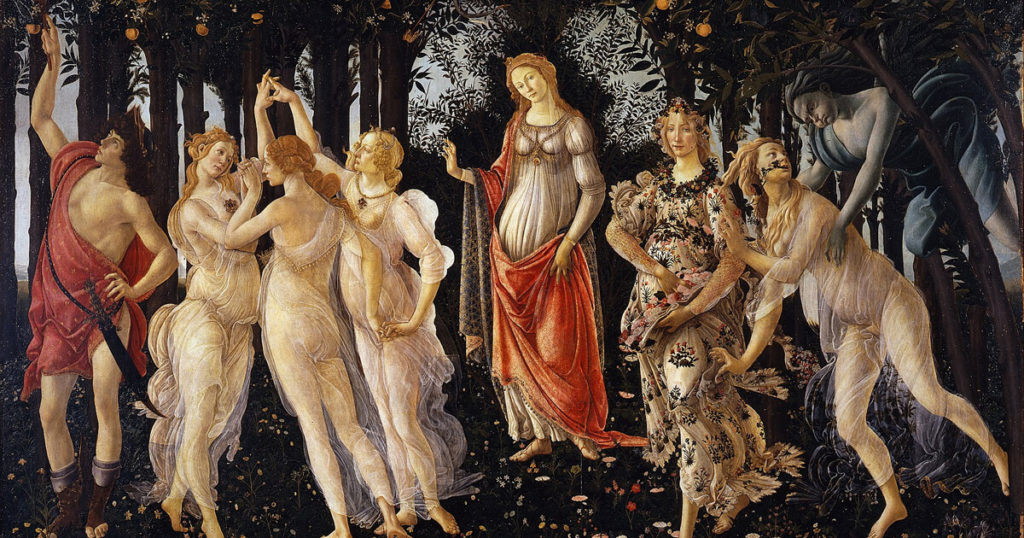
Every year when shad season comes around, I consider making Virgil Thomson’s recipe for shad-roe mousse. It’s in the back of Alice B. Toklas’s celebrated cookbook (in the section devoted to recipes from her friends), and it seems a fairly complicated affair. The shad roe is first fried in butter and later combined with finely ground halibut filets, egg whites, and cream; this mixture gets spooned into ramekins that are refrigerated and then baked in a water bath. Meanwhile, the halibut bones and skin—the assumption being that you have filleted the fish yourself—are used to make a white-wine-and-butter sauce that is enriched with eggs, cream, sherry, lemon juice, and paprika. Although irrationally obsessed with shad roe, I have yet to try Thomson’s mousse, tempted though I always am. Impatience usually leads me to a less fussy preparation—lemon, butter, maybe some capers.
There are other ways, however, to pay homage to Thomson and the imminent arrival of spring. We can listen, for example, to the composer’s 1964 piece The Feast of Love. Scored for baritone and chamber orchestra, the work is based on the Pervigilium Veneris, an unattributed Latin poem that Thomson adapted into straightforward, unadorned English. Pervigilium Veneris means “Vigil of Venus.” Its subject is a three-night festival of song, dance, and debauchery presided over by the love goddess herself, this early spring bacchanal taking place in the wooded domain of the huntress Diana.
You might expect so overt a hymn to carnality to be lush and red-blooded from the start, but Thomson begins in more restrained fashion. As the woodwind phrases dart here and there uncertainly, probing but getting nowhere, the baritone soloist sings in gentle syncopation: “Tomorrow all know love; / Love knows all tomorrow.” The text is ebullient, almost childishly ardent:
O, spring, singing spring!
Singing in spring, lovers love and all birds mate;
Under spring’s warm rain Diana’s woods unbind their hair.
And yet, the melody isn’t particularly sweet or warm. Love may be in the air, but the music suggests austerity; it’s as if the baritone were detached from the proceedings, assuming the part of a sober priest intoning a solemn, venerable rite.
With the imagery becoming more openly erotic, however, the mood shifts:
In west wind’s warmth, cluster’s blush and swelling buds burst open;
Star-lit globes of heavenly moisture tremble, hesitate, explode;
By dawn the virgin vests are all undone.
We can practically feel the wind blowing upon our cheek, so visceral is Thomson’s tone painting here. The sonorities of the orchestra are bright, the musicians strumming phrases like an ancient lyre, the baritone morphing from priest into bard. There’s a lovely decadence to these lyrical passages in duple and triple time, as the singer pleads with Diana to refrain from hunting in her wooded realm so that the party can continue unimpeded. The chaste Diana, meanwhile, has not been invited to the celebration; that her realm is being violated is suggested by another contrasting musical texture—still lyrical but with hints of darkness not far beneath the surface.
Indeed, The Feast of Love is a work of contrasts and tension. Any impulse toward the voluptuous is tempered by classical restraint. A composer such as Samuel Barber might have taken this same text and produced music more romantically exuberant, but Thomson’s aesthetic, honed by Nadia Boulanger in Paris, demanded simplicity, directness, wittiness, and elegance. But if the method was at its heart French, Thomson’s idiom was very much American. There’s a wonderful moment in The Feast of Love that sounds to me unmistakably Midwestern. It follows Venus’s command to the humans and the animals to couple and then produce offspring, as dictated by the season, and is heard during the invocation of the animal kingdom:
There love doth multiply the herds;
Bulls rest with cows on yellow broom;
Ewes lie in the shade with rams,
And singing is neglected by no bird.
The hymn-like sounds and cadences seem like nostalgic nods to Thomson’s roots. He was born, after all, in Kansas City, Missouri, and the Midwest always remained at the forefront of his imaginative and creative life.
A marvelous turn occurs near the end of the work, just as the poem’s speaker uses the first person for the first and only time:
[Venus] sings, not I; my voice is lost.
When shall the soaring swallow mount again?
O, glance at me, Apollo, lest I remain
Forever mute, a ruin on the plain!
The tempo slows, the voice becomes impassioned, and the meaning of this remarkable passage remains elliptical. Who is this “I,” and why is he alone, voiceless, standing apart from all other living things? What is the cause of his inconsolable sorrow? The baritone holds the note on the word plain, but soon a soft strike of the cymbal changes the atmosphere, and we are back to the beginning once more, the woodwinds playing those unsettling, probing lines and the singer intoning the familiar words: “Tomorrow all know love; / Love knows all tomorrow.” In a work about seasonality, it’s fitting that the music turns back on itself. Life goes on, winter promises to thaw each year into spring, the circle of life will not be broken, and though the haunting questions the piece asks remain unanswered, the brief major chord that ends it leaves us feeling optimistic.
Unlike his elaborate mousse, Thomson’s music aimed to be, as he put it, “as simple as a friendly conversation.” The Feast of Love is a great example of this, uttered without ornament or frills, but with charm and felicitous phrasing. The sense of intimacy that characterizes Thomson’s work can be felt in his larger works, even his operas, but it’s especially pronounced in the songs and other vocal pieces—some of the most pleasurable in American music.
Listen to baritone Thomas Meglioranza sing Thomson’s Feast of Love, with Gil Rose leading the Boston Modern Orchestra Project:


